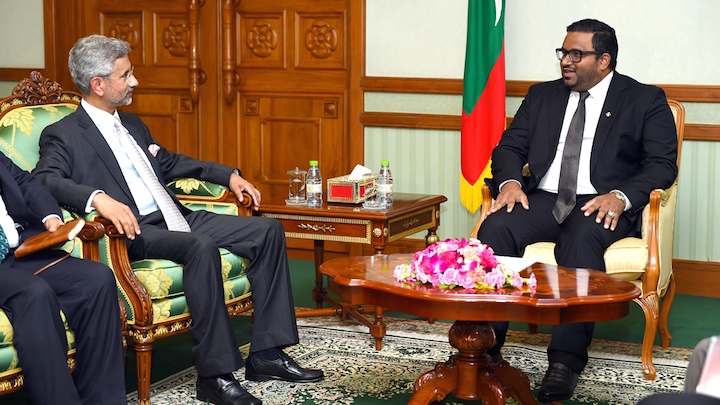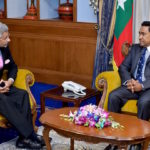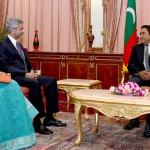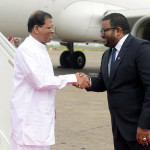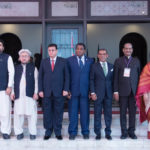Indian foreign secretary and special envoy of Prime Minister Narendra Modi, Dr S Jaishankar, departed yesterday after concluding a one-day official visit to the Maldives.
The foreign secretary’s visit came soon after the opposition raised fears of Chinese military expansion in the Maldives following controversial amendments brought to the constitution that allow foreigners to own freeholds in the country with an investment of US$1 billion.
During his visit, Jaishankar met with Vice President Ahmed Adeeb and “discussed ways to further enhance relations between both countries,” according to the president’s office.
“At the meeting, the Indian Foreign Secretary pointed out that the Indira Gandhi Memorial Hospital was one of their proudest foreign projects in the Maldives,” the president’s office said, adding that Jaishankar assured the vice president of “India’s continued support and assistance to the Maldives.”
Jaishankar also met foreign minister Dunya Maumoon and attended a luncheon hosted by Maldivian foreign secretary Dr Ali Naseer Mohamed in honour of the visiting Indian delegation.
The Indian foreign secretary’s visit was part of his ‘SAARC yatra’ tour intended to strengthen relations with South Asian neighbours and review bilateral cooperation. Jaishankar had visited Bhutan, Bangladesh, Pakistan, Afghanistan, Sri Lanka and Nepal earlier this year.
Maldivian foreign secretary Naseer meanwhile departed to India this morning “to attend the round table discussion with Delhi Policy Group (DPG) on Indo-Maldives Relations.” The DPG is an independent think tank.
The foreign ministry said Naseer is due to meet Jaishankar during the visit.
Following the passage of the constitutional amendments on foreign freeholds in late July, the main opposition Maldivian Democratic Party (MDP) had expressed concern with the unprecedented changes facilitating “foreign non-commercial logistical installations in the Maldives.”
However, in a statement sent to Reuters, China’s foreign ministry said the parliamentary vote on authorising foreign ownership of land was an internal matter for the Maldives.
China “has always respected and supported the Maldives’ efforts to maintain its sovereignty, independence and territorial integrity,” the ministry said.
“What the relevant people said about China building bases in the Maldives is totally baseless,” it added.
President Abdulla Yameen had also insisted that foreign freeholds will not adversely affect “friendly relations” with South Asian neighbours.
“The Maldivian government has given assurances to the Indian government and our neighbouring countries as well to keep the Indian Ocean a demilitarised zone,” he said.
Reuters noted that India has been “concerned about China’s growing involvement in the Indian Ocean as it opens its purse strings and builds a network of ports dubbed the String of Pearls.”
Meanwhile, in an interview with The Hindu newspaper, Vice President Adeeb dismissed fears of Chinese military expansion in the Maldives as a “political play by the opposition to try and create a problem between the Maldives and India”.
“We are open for business, but not open to give up our sovereignty to any country including China,” he said.
Adeeb said China has “never shown an interest in this kind of project,” but has offered partnership in infrastructure projects with concessional loans.
“We are seeing much more interest from the Middle East (West Asia), especially from royal families there. Maldives can be like Bahrain is for them,” he said.
Adeeb referred to President Yameen rejecting an offer from the United States to build a base in the Maldives last year. “Our sovereignty is not on offer,” he said.
“And we don’t want to give any of our neighbours, India….any cause for concern. We don’t want to be in a position when we become a threat to our neighbours,” he said.

